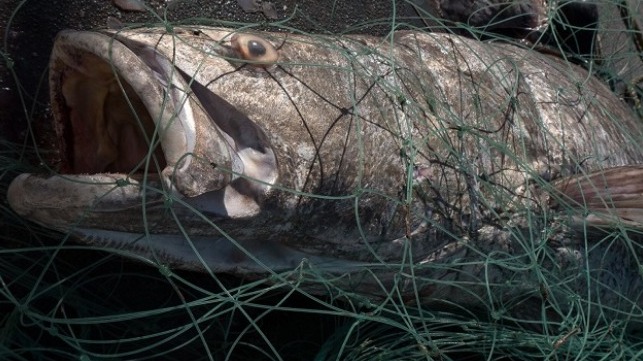Sea Shepherd Returns to the Sea of Cortez

The Sea Shepherd vessel the M/V Farley Mowat has arrived in the Sea of Cortez in the Upper Gulf of California to commence a campaign to protect the totoaba fish and the vaquita porpoise - currently the most endangered marine mammal in the world. The last study released showed that less than 30 vaquita were alive.
The Sea Shepherd team sighted a vaquita in early 2015, and the Mexican government renewed its commitment to protect the endemic species, using navy and army resources. Sea Shepherd has also worked to remove illegal fishing gear from its habitat.
The fate of the vaquita is linked to that of the totoaba fish. After the totoaba was harvested to near extinction in the mid-1970s, its fishing was banned. Recently, however, it was discovered that the totoaba closely resembled a Chinese endemic croaker, which was critically endangered due to the demand for its swim bladder. This resulted in the start of huge amounts of illegal fishing for the totoaba in search of the swim bladder, believed to have medicinal properties.
The totoaba and the vaquita are of a similar size, and during the totoaba spawning season, they inhabit the same location. This results in the death of the vaquita from the gillnets laid to catch the totoaba. A poacher can allegedly make $2,500 per totoaba bladder, which will sell for $20,000 in Asian black markets.
Sea Shepherd claims to have removed 808 illegal pieces of fishing gear since beginning operations five years ago. This has cost the poachers an estimated $857,779 in lost fishing gear. Sea Shepherd has saved 3,069 animals, including one humpback whale, 88 critically endangered totoaba fish, one critically endangered pacific leatherback turtle and 21 sharks. Those numbers do not include the hundreds of animals saved by the removal of the nets and other fishing gear before the animals become entangled.
“If Sea Shepherd had not been present in the Sea of Cortez, the vaquita could be extinct by now,” said Captain Paul Watson, founder and CEO of the conservation organization. “For all the people saying there is no hope for the vaquita, we disagree”
Earlier this year, Sea Shepherd received a vessel donation from philanthropist Benoit Vulliet and the new vessel, former U.S. Coast Guard Buoy Tender White Holly, is expected to enter the campaign later this year.
